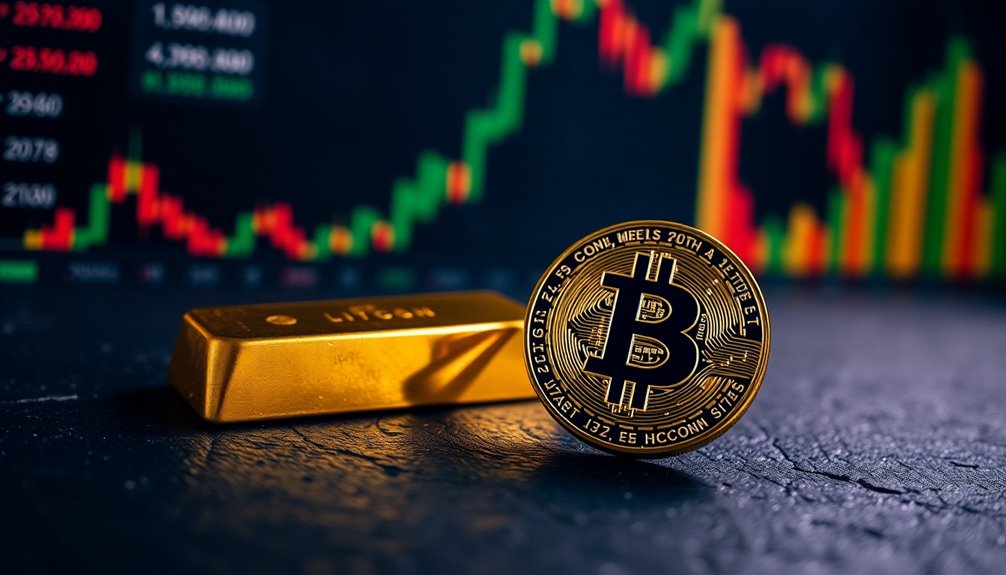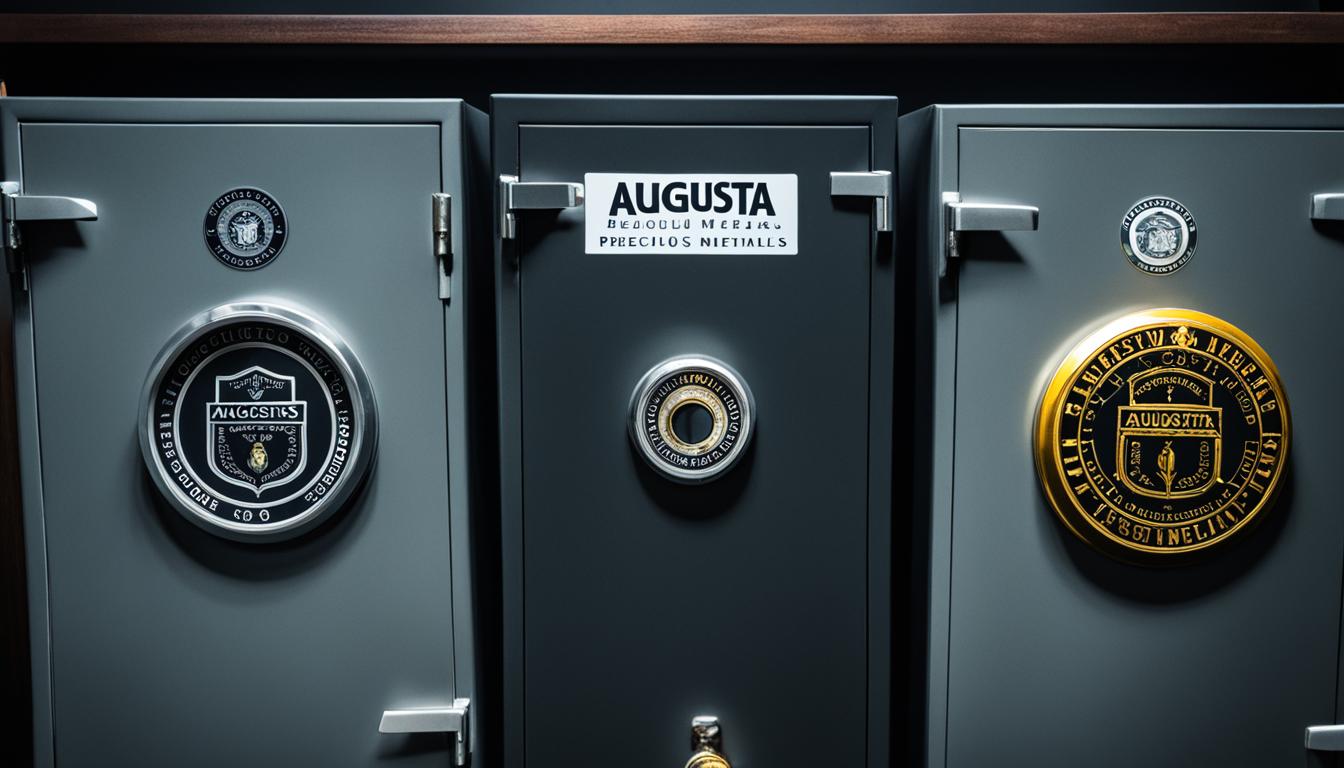You're facing a tough choice in today's unpredictable market. With Trump's trade war shaking things up, you need to decide between gold's stability and Bitcoin's potential for rapid gains. While gold shines as a traditional safe haven, Bitcoin's allure lies in its volatility and promise of high returns. As you weigh these options, consider how your risk tolerance will guide your decision. What factors will ultimately influence your investment strategy?

As trade tensions escalate, you might be wondering whether to turn to gold or Bitcoin for stability in your investment portfolio. Gold has emerged as a strong contender, recently hitting record highs of over $2,900 an ounce due to increased demand as a safe-haven asset. The unpredictable nature of Trump's trade policies, including the imposition of tariffs on steel and aluminum, has driven investors toward gold, which historically retains value in uncertain times. In fact, China's central bank has expanded its gold reserves for the third consecutive month, suggesting a strategic move to diversify assets and further bolster gold's position. Gold IRA options are becoming increasingly popular among those looking to secure their retirement with tangible assets.
While gold is performing well, Bitcoin's journey has been far more tumultuous. It saw a significant drop from over $100,000 to around $95,000, reflecting its inherent volatility. Analysts remain divided; some believe Bitcoin could emerge as a long-term beneficiary of trade tensions, while others point to its strong link with the U.S. stock market and the dollar's strength as potential drawbacks. The cryptocurrency faces fierce competition from gold, especially as investors seek safe-haven assets amid economic uncertainty. Recent trends indicate that China's central bank has been expanding its gold reserves, further emphasizing gold's growing dominance in times of crisis.
The trade war's impact on global markets can't be understated. Tariffs have driven up commodity prices and weakened several currencies against the dollar, pushing investors to reconsider their strategies.
Despite the turbulence, U.S. stock futures maintain a positive outlook, indicating some resilience in equity markets. However, with the European Union threatening retaliation against U.S. tariffs, the potential for further conflict looms large.
Given this climate of uncertainty, many investors are diversifying their portfolios with gold and other safe-haven assets. Gold's strong performance compared to Bitcoin and equities highlights its enduring appeal during times of crisis.
Many view it as a reliable store of value, while Bitcoin's price movements are still swayed by regulatory clarity and market sentiment.
Ultimately, the ongoing trade war will continue to shape investor decisions regarding these assets. Those seeking immediate stability might lean toward gold, given its proven track record.
Conversely, if you're willing to embrace volatility and speculate on Bitcoin's long-term potential, it could also offer unique opportunities. As you weigh your options, consider the macroeconomic factors at play and your own risk tolerance, as these will guide your path in this challenging investment landscape.









